Alkuperäinen Arduino® ABX00023 - Arduino MKR WiFi 1010 - turvallisten WiFi ja Bluetooth -sovellusten toteutukseen. Mm. Atmel SAMD21 mikrokontrolleri, kaverina u-blox NINA-W102, kryptolastu ATECC508. Tukee LiPo-akkua teholähteenä.
Ei tuotteita
Arduino® MKR
- 3D-tulostus
- Antennit
- Akut ja paristot
- Arduino
- Audio/video
- Autoilu
- Automaatio
- BBC micro:bit
- Elektroniikan komponentit
- Anturit
- Aktiivit
- Passiivit
- Komponenttilajitelmat
- Hälytin/valvonta
- IOT
- Juottaminen
- Juottimet
- Juotintelineet
- Juoksutteet/pastat
- Juotoslangat
- Juottamisen apuvälineet
- Kaasujuottimet
- Kuumailma-asemat
- Pintaliitostekniikka
- Puhdistustarvikkeet
- Tinaimurit ja tinaimusukat
- Varaosat Pace
- Varaosat Proskit
- Varaosat Thermaltronics
- Varaosat Velleman
- Varaosat Weller
- Varaosat Xytronic
- Sekalaiset juotostarvikkeet
- Varaosat Pinecil
- Varaosat Atten
- Kaapelit metritavarana
- Antennikaapelit 50ohm
- Antennikaapelit 75ohm
- Audiokaapelit/johdot
- Datakaapelit
- FFC kaapelit
- Kaiutinkaapelit
- Kalustekaapelit
- Kumikaapelit
- Kuparilangat
- Lattakaapelit
- Monisäikeiset asennusjohdot
- Puhelinkaapelit
- Silikonijohdot
- Termoparikaapelit
- Verkkokaapelit CAT5/6/7
- Videokaapelit
- Yksisäikeiset kytkentäjohdot
- Kaapelilajitelmat
- Virransyöttökaapelit
- Kaapelitarvikkeet
- Kehityskortit
- Kirjat
- Ledit
- Liittimet
- Audio/video-liittimet
- Autoliittimet
- Piikkirima-liittimet
- RJ modular-liittimet
- Puristusliittimet
- RF-liittimet
- 7/16-koaksiaaliliittimet
- BNC-liittimet
- F-liittimet
- FME-liittimet
- IEC-antenniliittimet
- MCX-liittimet
- MMCX-liittimet
- MiniUHF-liittimet
- N-liittimet
- SMA-liittimet
- SMB-liittimet
- SMC-liittimet
- SSMB-liittimet
- TNC-liittimet
- UHF-liittimet
- U.FL-liittimet
- RF-testiliittimet
- RF-välikaapelit
- Sekalaiset koaksiaaliliittimet
- Riviliittimet
- Teollisuus-liittimet
- Tietokone-liittimet
- Virtaliittimet
- Moninapaiset virtaliittimet
- DIN41612 EURO-liittimet
- Liitinadapterit
- Lämmönhallinta
- Mekaniikka
- Näytöt
- Mittalaitteet
- Yleismittarit
- Mittajohdot/liittimet
- Paneelimittarit
- Pihtimittarit
- Jännitekoettimet
- Lämpömittarit
- Ympäristön mittalaitteet
- Keinokuormat
- Komponenttitesterit
- Kuituverkon mittaus
- Sähköverkon mittaus
- Debuggaus
- Oskilloskoopit
- Signaaligeneraattorit
- Sekalaiset mittalaitteet
- Spektrianalysaattorit
- Logiikka-analysaattorit
- Probet
- Dataloggerit
- Mittalaitetarvikkeet
- Rigol oheistarvikkeet
- Rigol optiot
- Muistikortit
- Palvelut
- Puhelimet
- Protoilu
- Rakennussarjat
- Raspberry Pi
- Retro gaming
- Robotit
- Sekalaiset
- Sähkömekaniikka
- Kytkimet
- Painokytkimet
- Vandal proof painokytkimet
- Arcade pelikytkimet
- Keinukytkimet
- Liukukytkimet
- Mikrokytkimet
- Ovikellokytkimet
- Pulssienkooderit
- Rockwell teollisuuskytkimet
- Vipukytkimet
- Asentokytkimet
- Avainkytkimet
- DIP-kytkimet
- Jalkakytkimet
- Joystick
- Kalustekytkimet
- Kalvokytkimet
- Kiertokytkimet
- TV-verkkokytkimet
- Lamput
- Moottorit
- Releet
- Solenoidit
- Sulakkeet
- Tulppasulakkeet
- WICKMANN-sulakkeet
- Yleismittarisulakkeet
- Ylikuormitussuojat
- Autosulakkeet
- HRC-sulakkeet
- Lämpösulakkeet
- Langalliset sulakkeet
- Lasiputkisulakkeet
- Mikroaaltouunin sulakkeet
- Minisulakkeet TR5
- Palautuvat ylivirtasuojat
- Picosulakkeet
- Pintaliitossulakkeet
- Puolijohdesuojat
- Sulakepesät
- Sulakelajitelmat
- Kahvasulakkeet
- Termostaatit
- Kontaktorit
- Kytkimet
- Sähkötarvikkeet
- Teholähteet
- Tietokonetarvikkeet
- Tietoliikenne
- Ethernet/LAN
- RJ45-liittimet/rasiat
- Verkkokaapeloinnin työkalut
- Ethernet tarvikkeet
- Ethernet verkkokaapelit
- RJ45-moduulit
- SLIM® CAT6 Ethernet kaapelit
- SLIM® CAT6 Patchcords FLAT U/UTP
- SLIM® CAT6 Patchcords FLAT U/FTP
- SLIM® CAT6A Patchcords FLAT U/FTP
- SLIM® CAT6 Patchcords ROUND U/UTP
- SLIM® CAT6 Patchcords ROUND U/FTP
- SLIM® CAT6A Patchcords ROUND U/FTP
- SLIM® CAT6 Patchcords FLAT U/UTP with Nylon sheath
- SLIM® CAT6 Patchcords FLAT U/FTP with Nylon sheath
- Kytkentäpaneelit
- Valokuidut
- SFP Transceiverit
- WiFi
- Ethernet kytkimet
- Ethernet mediamuuntimet
- Reitittimet
- Yhdyskäytävät
- Ethernet/LAN
- TV/radio/VCR/CD
- Työkalut
- Valaistus
- Vimpaimet
- Kevätsiivous
- Edustukset Elgood Oy
- Abiko
- Adda
- Arduino Pro
- Attend
- Belden
- Blueferrite
- Broadlake
- Cvilux
- Danotherm
- DECA
- Delta
- Dinkle
- Entertec
- Finder
- Finder 12 Series
- Finder 13 Series
- Finder 14 Series
- Finder 1C Series
- Finder 20 Series
- Finder 22 Series
- Finder 34 Series
- Finder 36 Series
- Finder 38 Series
- Finder 39 Series
- Finder 40 Series
- Finder 41 Series
- Finder 43 Series
- Finder 46 Series
- Finder 48 Series
- Finder 4C Series
- Finder 58 Series
- Finder 50 Series
- Finder 55 Series
- Finder 56 Series
- Finder 60 Series
- Finder 62 Series
- Finder 65 Series
- Finder 66 Series
- Finder 68 Series
- Finder 7H Series
- Finder 7L Series
- Finder 7M Series
- Finder 7T Series
- Finder 80 Series
- Finder 83 Series
- Finder 86 Series
- Finder 8A Series
- Finder 90 Series
- Finder 92 Series
- Finder 93 Series
- Finder 94 Series
- Finder 95 Series
- Finder 96 Series
- Finder 99 Series
- Fulham Company B.V
- Geehy
- Hengstler
- Hirose
- HolyStone
- Jianghai
- KDS
- Lantronix
- Linear Integrated Systems
- LinkPP
- Luminus
- Murata
- Myrra
- PeakTech
- Provertha
- Quectel
- Relpol
- Rigol
- Rigol oheistarvikkeet
- Rigol optiot
- Rigol DG800 Pro
- Rigol DG900 Pro
- Rigol DG1000Z
- Rigol DG4000
- Rigol DG5000 Pro
- Rigol DHO800
- Rigol DHO900
- Rigol DHO1000
- Rigol DHO4000
- Rigol DHO5000
- Rigol DL3000
- Rigol DM3000
- Rigol DP700
- Rigol DP800
- Rigol DP900
- Rigol DP2000
- Rigol DS1000Z
- Rigol DS2000
- Rigol DSA700
- Rigol DSA800
- Rigol DSG800
- Rigol MHO5000
- Rigol MSO5000
- Rigol MSO7000
- Rigol MSO8000A
- Rigol RSA3000
- Rigol RSA5000
- Seiko
- Sensepeek
- Sensolute
- Teltonika Networks
- Teltonika Telematics
- VAC
- Winstar
- wireless-tag
- WKK
- Uutiskirjeet
- Kampanjat
- Välitysmyynti
- Välitysmyynti - Äänilähteet
- Välitysmyynti - Robotiikka ja protoilu
- Välitysmyynti - Virtalähteet
- Välitysmyynti - Kotelot
- Välitysmyynti - Tietokonetarvikkeet
- Välitysmyynti - Automatiikka
- Välitysmyynti - Johdot ja kaapelit
-

Owon XDS3104E OSKILLOSKOOPPI 100MHZ 4CH
Owon XDS3104E - nelikanavainen 100MHz...
541,28 € -25% 721,70 €
Yleiskatsaus
Arduino MKR WiFi 1010 on yhteensopiva Arduino IoT Cloudin kanssa.
Arduino MKR WiFi 1010 on helpoin tapa päästä alkuun perus IoT- ja pico-verkkojen sovellusten suunnittelussa. Olitpa rakentamassa anturiverkkoa, joka on yhdistetty toimiston tai kodin reitittimeen, tai haluat luoda BLE-laitteen, joka lähettää dataa matkapuhelimeen, MKR WiFi 1010 on yhden luukun ratkaisu moniin perus IoT-sovellusskenaarioihin.
Katso, mitä Arduino-yhteistyökumppani Massimo Banzi sanoo tästä piiristä seuraavassa videossa.
Piirin pääprosessori on vähävirtainen Arm® Cortex®-M0 32-bittinen SAMD21, kuten muissa Arduino MKR -perheen piirissä. WiFi- ja Bluetooth®-yhteydet hoidetaan u-bloxin NINA-W10-moduulilla, joka on vähävirtainen siru, joka toimii 2,4 GHz:n taajuusalueella. Näiden lisäksi turvallinen viestintä varmistetaan Microchip® ECC508 kryptosirun avulla. Lisäksi piiristä löytyy akkulaturi ja ohjattava RGB LED.
Arduino IoT Cloud
Käytä MKR-piiriäsi Arduinon IoT Cloudissa, joka on yksinkertainen ja nopea tapa varmistaa turvallinen viestintä kaikille yhdistetyille laitteillesi.
KOKEILE ARDUINO IOT CLOUDIA ILMAISEKSI
Virallinen Arduino WiFi -kirjasto
Arduinolla WiFi-verkkoon yhdistäminen on tehty yhtä helpoksi kuin LEDin vilkuttaminen. Voit saada piirisi yhdistymään mihin tahansa olemassa olevaan WiFi-verkkoon tai käyttää sitä oman Arduino Access Pointin luomiseen. Erityinen esimerkkisarja, jonka tarjoamme MKR WiFi 1010:lle, löytyy WiFiNINA-kirjaston viitesivulta.
Yhteensopiva muiden pilvipalveluiden kanssa
Piirisi on mahdollista yhdistää eri pilvipalveluihin, mukaan lukien Arduinon omat. Tässä muutamia esimerkkejä siitä, miten MKR WiFi 1010 voidaan yhdistää:
- Blynk: yksinkertainen projekti Arduino-yhteisöltä, joka yhdistää Blynkiin ja ohjaa piiriä puhelimesta vähäisellä koodilla tässä
- IFTTT: katso syvällinen tapaus älypistokkeen rakentamisesta, joka on yhdistetty IFTTT:hen
- AWS IoT Core: katso tämä esimerkki siitä, miten yhdistää Amazon Web Servicesiin
- Azure: vieraile tässä github-repositoriossa, joka selittää, miten yhdistää lämpötila-anturi Azure Cloudiin
- Firebase: jos haluat yhdistää Googlen Firebaseen, tämä Arduino-kirjasto näyttää, miten
Bluetooth® ja BLE
MKR WiFi 1010:n viestintäsiru voi olla sekä BLE- että Bluetooth®-asiakas- ja isäntälaitteena. Jotain melko ainutlaatuista mikro-ohjainalustojen maailmassa. Jos haluat nähdä, kuinka helppoa on luoda Bluetooth®-keskus tai oheislaite, tutustu esimerkkeihin Arduino ArduinoBLE-kirjastossa.
Teemme sen avoimeksi, jotta voit kokeilla
MKR WiFi 1010 on kaksiprosessorilaite, joka kutsuu kokeiluun. WiFiNINA-moduulin hakkerointi mahdollistaa esimerkiksi WiFi- ja BLE/Bluetooth®-yhteyksien käytön samanaikaisesti piirissä. Toinen mahdollisuus on, että moduulissa toimii erittäin kevyt Linux-versio, kun päämikro-ohjain ohjaa matalan tason laitteita, kuten moottoreita tai näyttöjä. Nämä kokeelliset tekniikat vaativat edistynyttä hakkerointia. Ne ovat mahdollisia moduulin laiteohjelmiston muokkaamisen kautta, jonka löydät Arduinon github-repositorioista.
VAROITUS: tällainen hakkerointi rikkoo WiFiNINA-moduulin sertifioinnin, tee se omalla vastuullasi.
Akkukäyttö
Sen USB-porttia voidaan käyttää piirin virransyöttöön (5V). Siinä on Li-Po-latauspiiri, joka mahdollistaa Arduino MKR WiFi 1010:n toiminnan akkuvirralla tai ulkoisella 5 voltin lähteellä, lataamalla Li-Po-akun ulkoisen virran aikana. Vaihto lähteestä toiseen tapahtuu automaattisesti.
Liittyvät piirit
Jos haluat päivittää aiemmista Arduino-suunnitteluista tai olet kiinnostunut piireistä, joilla on samanlaiset toiminnot, Arduinolta löydät:
- Arduino Uno WiFi rev2: MKR WiFi 1010:n koulutusversio, jossa on USB-B-liitin ja sisäänrakennettu kiihtyvyysanturi. Lue lisää tästä.
- Nano 33 IoT: jos tarvitset vielä pienemmän muodon, tämä piiri uhraa akku-liittimen, mutta perustoiminnot ovat olennaisesti samat. Käy sen tuotesivulla tässä.
- MKR WiFi 1000: voi käyttää vain WiFi-sovelluksia, koska siinä on eri siru kuin MKR WiFi 1010:ssä. Lue lisää siitä tässä.
Alkuun pääseminen
Alkuun pääseminen -osio sisältää kaikki tiedot, joita tarvitset piirin konfigurointiin, Arduino-ohjelmiston (IDE) käyttöön ja koodauksen ja elektroniikan kokeiluun.
Tarvitsetko apua?
Tarkista Arduino-foorumi kysymyksille Arduino-kielestä tai siitä, miten tehdä omia projekteja Arduinolla. Jos tarvitset apua piirisi kanssa, ota yhteyttä viralliseen Arduino-käyttäjätukeen, kuten selitetään Ota yhteyttä -sivullamme.
Takuu
Takuuinformaation piirillesi löydät täältä.
Tekniset tiedot
Arduino MKR WiFi 1010 perustuu SAMD21-mikro-ohjaimeen.
| Mikro-ohjain | SAMD21 Cortex®-M0+ 32-bittinen vähävirtainen ARM MCU (datasheet) |
| Radiomoduuli | u-blox NINA-W102 (datasheet) |
| Piirin virtalähde (USB/VIN) | 5V |
| Turvaelementti | ATECC508 (datasheet) |
| Tukee akkua | Li-Po yksisoluinen, 3.7V, vähintään 1024mAh |
| Piirin käyttöjännite | 3.3V |
| Digitaaliset I/O-pinnit | 8 |
| PWM-pinnit | 13 (0 .. 8, 10, 12, 18 / A3, 19 / A4) |
| UART | 1 |
| SPI | 1 |
| I2C | 1 |
| Analogiset tulopinnit | 7 (ADC 8/10/12 bit) |
| Analogiset ulostulopinnit | 1 (DAC 10 bit) |
| Ulkoiset keskeytykset | 10 (0, 1, 4, 5, 6, 7, 8, 9, 16 / A1, 17 / A2) |
| DC-virta per I/O-pinni | 7 mA |
| CPU Flash -muisti | 256 KB (sisäinen) |
| SRAM | 32 KB |
| EEPROM | ei |
| Kellotaajuus | 32.768 kHz (RTC), 48 MHz |
| LED_BUILTIN | 6 |
| USB | Täysnopeuksinen USB-laite ja sisäänrakennettu isäntä |
| Pituus | 61.5 mm |
| Leveys | 25 mm |
| Paino | 32 gr. |
Video
Lisätietoja
ARDUINO DOCS Täydelliset tekniset tiedot, tutoriaalit ja paljon muuta löydät Arduino Docsista
Lisä I2C-portti
MKR WiFi 1010:ssä on lisäliitin, joka on tarkoitettu I2C-väylän laajennukseksi. Se on pienikokoinen 5-nastainen liitin, jonka askelväli on 1,0 mm. Liittimen mekaaniset yksityiskohdat löytyvät liittimen datasheetistä.
I2C-portti, jota Arduinossa kutsutaan myös Eslov-itsetunnistusportiksi, sisältää: SDA, SCL, GND, +5V ja ylimääräisen digitaalisen nastan, joka on tarkoitettu hälytyksen lähettämiseen muille I2C-laitteille. Pinout on esitetty seuraavassa kuvassa:
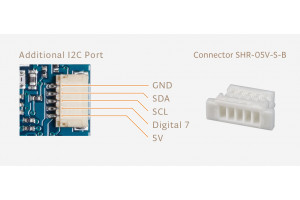
Jos olet kiinnostunut suunnittelemaan omia moduuleja Arduino-piireille tällä laajennusportilla, suosittelemme käyttämään koodia: SHR-05V-S-B, myös kuvassa.
| EAN | 7630049200258 |
| Klikkaa tarkemmat tiedot | |
| Valmistaja | Arduino |
| Valmistajan malli | ABX00023 |
| Yhteensopiva | Arduino MKR |
| Prosessori | ARM Cortex-M0+ (SAMD21) |
| Kellotaajuus | 48MHz |
| Muisti RAM | 32KB |
| Muisti EEPROM | ei |
| Muisti FLASH | 256KB |
| Verkkoliitännät | BT,Wifi |
Tätä tuotetta ostaneet ostivat myös:
-
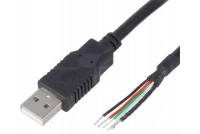
USB-2.0...
USB-kaapeli vapaalla päällä omiin...
4,40 €
-
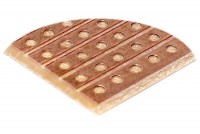
1,70 €
-
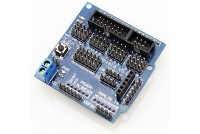
10,02 €
-
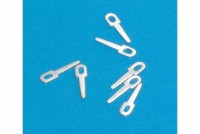
0,16 €
-
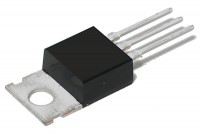
0,59 €
-
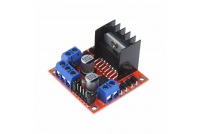
Cytron...
Cytron MD-L298N - 2Amp 7V-30V L298N...
8,17 €
-
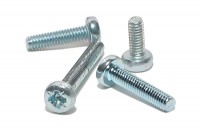
0,12 €
-
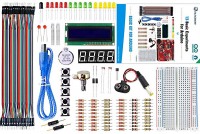
ARDUINO...
Elecrow ACK02124K (without Crowduino) -...
27,40 €
-
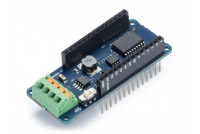
Arduino MKR...
Alkuperäinen Arduino® ASX00005 - Arduino MKR...
46,30 €
-
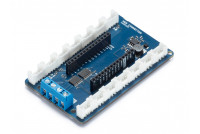
Arduino MKR...
Alkuperäinen Arduino® ASX00007 - Arduino MKR...
28,10 €






